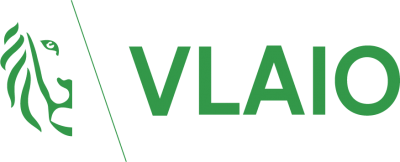Topics
We organise our actions in six thematic & strategic agendas:
Strategic Agendas:
Bio-economy
Circular Construction
Chemicals/Plastics
Manufacturing Industry
Food Chain
Water Cycles
Seven leverages provide additional support:
Leverage effects:
Lever Policy Instruments
Lever Circular Procurement
Lever Communication
Lever Innovation & Entrepreneurship
Lever Financing
Lever Jobs & Skills
Lever Research
What, why and how?
Why are we pursuing a circular economy?
Future visions 2050
How do we see our circular future?
About our management
Who steers what at Flanders Circular?
Zero food waste Vlaanderen
Building a network to fight food waste
There are currently many solutions to food wastage, but this sometimes makes it difficult for a city council, large-scale kitchen or other organisation to see the wood for the trees.
With the Zero Food Waste Flanders project, FoodWIN, together with a number of partner organisations, is developing an innovative cooperation model to tackle food loss effectively. We want to place particular emphasis on connecting organisations with the right experts and solutions, and on making knowledge about the theme of food waste more accessible.
In concrete terms, we want to position ourselves as the central point of contact in the fight against food wastage by organising events and actively participating in projects and consultations. We also want to involve our network of experts as much as possible. We use our position to also put our partners forward, and connect the problem with the right solution or expert. In this way, governments and organisations receive increasingly specialised support to expand their activities around food loss. Furthermore, we want to develop an innovative cooperation model between the leading actors. Finally, we want to make the knowledge in the fight against food waste as accessible as possible. To this end, we are developing an online self-assessment tool.
FoodWIN
Partners Coduco, Komosie (en Schenkingsbeurs), WOWfood, Eatmosphere, Citylab, Rekub, Foodlab & Incubator Proef, Resilia solutions en Level IT
Sectors
Themes
Organisations
Website
MOST IMPORTANT
RESULTS
- We organised the first Food Waste Fest: an event on food waste that brought together many actors. It included a conference, a market where organisations could display solutions to food waste and the presentation of the Food Waste Awards.
- Throughout the project, we were able to reach many local authorities that want to take action against food waste. We now have projects running in some 15 cities and municipalities. We will also continue to focus on this important target group.
- We have set up a Food Waste Alliance. This is an innovative partnership of various experts in the field of food wastage. By bringing together these leading actors, we can significantly increase our impact.
- We developed an online self-assessment tool as an inspiration for those who want to take action against food waste. The tool has three parts: a Food Waste Calculator, a Food Waste Journey and a manual with best practices and examples.
MOST IMPORTANT
LESSONS LEARNED
- When organising the first Food Waste Fest, we learned that it is important to start planning in time. For example, immediately afterwards we started looking for interesting partnerships for the next edition, and started promoting them in good time.
- The co-creation of a new cooperation model was a big challenge. Working together with such a heterogeneous group of organisations, each of which has its own busy schedule, is not easy, but it is extremely valuable.
- He who sows, will (much later) reap. Throughout this project, we learned that there are sometimes long delays associated with certain decision-making processes at local government level. We learned to plan for the long term and not to panic when answers take a long time to arrive.
- In the process, we discovered an enormous number of possible solutions to food waste... It is quite a challenge to bring them all together and make them accessible, but we will keep working.
WHAT DOES
THE FUTURE HOLD?
Thanks to Flanders Circular, we were able to hold the first Food Waste Fest in 2019. After that, the concept was launched to be able to continue in the future, even without a project subsidy. We are proving this with the organisation of the Food Waste Fest 2.020, which we are funding through partnerships.
Throughout the project, we were able to reach an enormous number of local authorities. We are now carrying out projects in some 15 cities and municipalities, and the intention is to continue to address this target group in the future.
We also want to continue to work on the development of our Food Waste Alliance, because we believe that there is a need for such a partnership both among our partners and the players in the food chain.
Once the support of local authorities and mass caterers has been consolidated, this model can be extended to other actors and sectors. To this end, we are mainly looking at sectors where challenges are big and adequate solutions do not yet exist to stimulate actions.
















